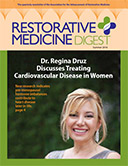Evidence from experimental studies, as well as the observable increased risk of mortality and morbidity associated with infections in the elderly,1demonstrate that immune competence declines with age. A cardinal characteristic of immunosenescence and age-related cellular senescence in general, is a shift to the senescence-associated secretory phenotype (SASP). Senescent cells are metabolically active but resistant to apoptosis. They produce mediators that are largely pro-inflammatory, complement-activating (an aspect of innate immunity), pro-coagulatory, and detrimental to the extracellular matrix, all of which contribute to the promotion of age-related pathologies. Several factors including genetics, diet, exercise, and prior exposure to infectious agents can influence immunosenescence.2
Viruses can induce senescence in infected cells as a primary stress response, which results in SASP expression.3Like other viruses, SARS-CoV-2 may instigate cellular senescence and amplify SASP expression.4 Complications of SARS-CoV-2 infection, such as cytokine storm and multiorgan failure, involve many of the substances produced by senescent cells via SASP expression. It is known that adults over the age of 65 and people with chronic health conditions have the greatest risk of severe disease and mortality from COVID-19. The mechanisms of aging may also put older people at greater risk for developing post-acute sequelae of SARS-CoV-2 infection, or Long-Hauler’s Syndrome.5
The link between viral infections and cellular senescence has prompted researchers to investigate the efficacy of senolytic agents, which have been shown to induce apoptosis in senescent cells in studies of aged animals and in animal models of chronic diseases, as a potential therapy in Long-Hauler’s Syndrome.6A pre-clinical study found that 100% of old mice acutely infected with SARS-CoV-2 died within two weeks, whereas 64% of male mice (and 22% of female mice) treated with the senolytic agent fisetin, survived long term. A significant extension in overall lifespan was noted for both male and female mice, with the sex differential probably due to the fact that male and female mice were not age matched, rather than reflecting a true sex difference in the effect of fisetin.7
An NIH-funded multicenter, placebo-controlled clinical trial is currently underway to determine if fisetin can reduce SARS-CoV-2 morbidity and mortality in older adults residing in a skilled nursing facility.8,9 Senolytics have been studied in several clinical trials for multiple health conditions, including diabetes, cardiovascular diseases, kidney diseases, and lung diseases. These chronic health conditions are associated with cellular senescence and are also risk factors for severe SARS-CoV-2 disease and mortality.10 The large clinical trial of fisetin for SARS-CoV-2 in older adults will expand our understanding of how aging mechanisms contribute to morbidity and mortality in COVID and potentially other viral infections.
References
- https://pubmed.ncbi.nlm.nih.gov/12409046/
- https://immunityageing.biomedcentral.com/articles/10.1186/s12979-018-0117-8
- https://www.ncbi.nlm.nih.gov/pmc/articles/PMC7764305/
- https://www.nature.com/articles/s41577-022-00785-2
- https://www.sciencedirect.com/science/article/pii/S1931524421002590
- https://www.nature.com/articles/s41586-021-03995-1
- https://pubmed.ncbi.nlm.nih.gov/34103349/
- https://grantome.com/grant/NIH/R01-AG072301-01
- https://pubmed.ncbi.nlm.nih.gov/34375437/
- https://www.nature.com/articles/s41591-022-01923-y
